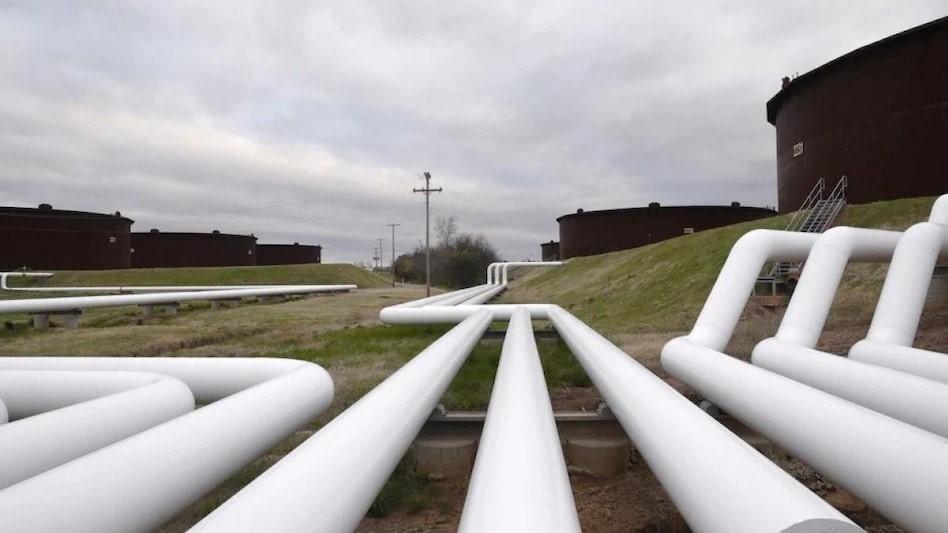Africa-Press – South-Sudan. The European Union last week took a bold step by approving new sanctions on Russia’s oil and top bank Sberbank to punish Russian President Vladimir Putin following his February 24 invasion of Ukraine.
While EU leaders are used to plentiful supplies of Russian energy, Thursday’s partial embargo on crude oil imports will take full effect by the end of 2022. Hungary and two other landlocked Central European states secured exemptions for the pipeline imports they rely on.
The sixth round of sanctions also included banning three more Russian state media outlets and cutting off Russia’s biggest bank, Sberbank, from the Society for Worldwide Interbank Financial Telecommunication (SWIFT) system.
Oil and gas prices have risen since Moscow invaded Ukraine in February and the United States and allies subsequently imposed heavy sanctions on Russia. Crude trade has been curtailed, and Russia has threatened to cut off the gas supply to Europe, though it has stopped short of that move.
On Monday, oil prices rose to $120 per barrel. EU had been importing 36 per cent of its oil from Russia, the world’s third-largest oil producer after the U.S and Saudi Arabia.
According to CNBC news, the oil embargo will cripple Russia’s oil export by 90 per cent while 10 per cent will be exported to the European Union.
These new twists are viewed by economists as windows of opportunity for the oil-rich nations to grab and lobby for something to have their fill.
South Sudan produces one of the finest Brent (crude oil) in the world, as prices of Brent have risen to $119.89/bbl.
On Wednesday, the economic advisor for the economic cluster, Dr Abraham Maliet Mamer, noted this gap created by the EU divorcing Russia as a chance for South Sudan’s Ministry of Foreign Affairs to lobby for the market of South Sudan’s crude oil.
“We need our foreign policy to begin to talk to European Union so that we can offer our oil. Our oil is one of the classified ones, it is a good Brent. So European Union will buy it. Now we can negotiate with European Union directly,” Dr Maliet advised.
Opportunity shows up
He noted that selling oil to the EU would ensure transparency because they do not buy from brokers, but buy directly from the ministry of petroleum and finance.
“European Union are very transparent. If we sell our oil to European Union, we will see transparency. They will buy from us directly and will not buy from brokers. They will buy directly from the Ministry of Petroleum and Finance from the government,” he added.
“From an economic view, we have now an opportunity, a window to begin to trade with European Union directly.
Late last month, South Sudan and Sudan started negotiations on increasing tariffs for using pipelines for transporting oil through Sudan, to reach the international market to $25 per barrel.
These efforts are to renew the crude oil transfer agreement from Juba to Khartoum for refining and export.
Dr Maliet however advised South Sudanese who are negotiating not to accept any tariff beyond $10 per barrel, saying pipelines were shared by the two countries and therefore, no tariffs should be paid.
“We were paying $25 per barrel that was a fixed price. I would go for $10 per barrel. We should not negotiate beyond $10 per barrel, this would be my advice to those guys negotiating,” he said.
“The money which was used to build these pipes was from the proceeds of the oil of South Sudan. Sudan did not have money. If I was to be one of those negotiators, I would go back to this point first. These pipelines are for the two countries, they should not be paid for.”
He further advised that an economist should be with the negotiating team to break down the tariffs for the team to understand them well so that they can negotiate a reasonable tariff.
Sudan and South Sudan signed this maiden agreement in 2012 for three and a half years. In March, the agreement was extended for South Sudan to use pipelines by paying $13 per barrel.
The negotiations are such that oil transport tariffs should be lifted by $7 to $12 on top of the initial $13 per barrel, according to a specialised energy platform. This will bring the tariff to $25 or a minimum of $20 per barrel.
The negotiations had been triggered by high-oil prices of which the old trading price was $40 per barrel but currently soaring at $110 to $120 per barrel.
The effort to raise tariffs is intertwined with rises prices, and so tariffs should increase as well, but without affecting South Sudan’s oil revenue.
It is estimated that Sudan’s share was to reach 72000 barrels per day in May, while this month (June), it is likely to rise to 73,000 barrels per day.
South Sudan’s production too was estimated to be 124,000 barrels per day in May and expected to rise to 126,000 barrels per day this month (June).
For More News And Analysis About South-Sudan Follow Africa-Press






